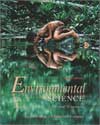 |
1 |  | 
What are four central questions environmental science seeks to answer? |
|  | |
 |
 |
2 |  | 
Describe the composition of the global village. |
|  | |
 |
 |
3 |  | 
Define sustainable development. |
|  | |
 |
 |
4 |  | 
Explain the connection between acute poverty and environmental degradation. |
|  | |
 |
 |
5 |  | 
Explain how the loss of indigenous peoples and cultures may further environmental degradation |
|  | |
 |
 |
6 |  | 
Respond to the skeptic who says, “For the life of me, I don’t understand why people are so worried about the world’s poor people and their impact on the environment. Look. Pollution is linked to consumption. It takes wealth to buy things. Since the acutely poor are unable to consume, there won’t be an environmental problem.” |
|  | |
 |
 |
7 |  | 
Do you consider yourself more of a neo-Malthusian or a technological optimist? Would it have influenced your choice of views if the choices had been labeled realist (instead of neo-Malthusian) and idealist (instead of technological optimist)? |
|  | |
 |
 |
8 |  | 
Before understanding the relevance of issues raised in environmental science, a person needs to recognize connections between the natural world and our daily lives. Since reality to many people is that water comes from a faucet, food from a store, and disease by chance from nowhere, such connections are not always obvious. Make a list of your basic necessities, and describe as best you can how each is connected to the natural world. |
|  | |
 |
 |
9 |  | 
The United States makes up nearly 5 percent of the world’s people. If the rest of the world produced toxic waste at the same rate we currently do, how much more toxic waste would be produced than now? (To do this, you need to remember what proportion of all toxic waste is produced by the U.S.) |
|  | |
 |
 |
10 |  | 
The same kinds of calculations as in question 9 can be done for many other kinds of pollutants. Why are ecologists a bit unnerved when they realize that a high percentage of the world’s people aspire to live as we do? |
|  | |
 |
 |
11 |  | 
Environmental science is the most interdisciplinary subject you will encounter. In the chapter section on indigenous peoples, the point is made that cultural diversity, including language diversity, is linked to the well-being of the earth’s biological diversity. Explain this linkage. |
|  | |
 |
 |
12 |  | 
Would you call the speaker of the following words an optimist or a pessimist? Why? If we keep the status quo, we’re headed for environmental disaster. But I am confident that when people have the relevant information, they will make the hard choices and change their ways, and disaster will be avoided. |
|  | |
 |



 2003 McGraw-Hill Higher Education
2003 McGraw-Hill Higher Education